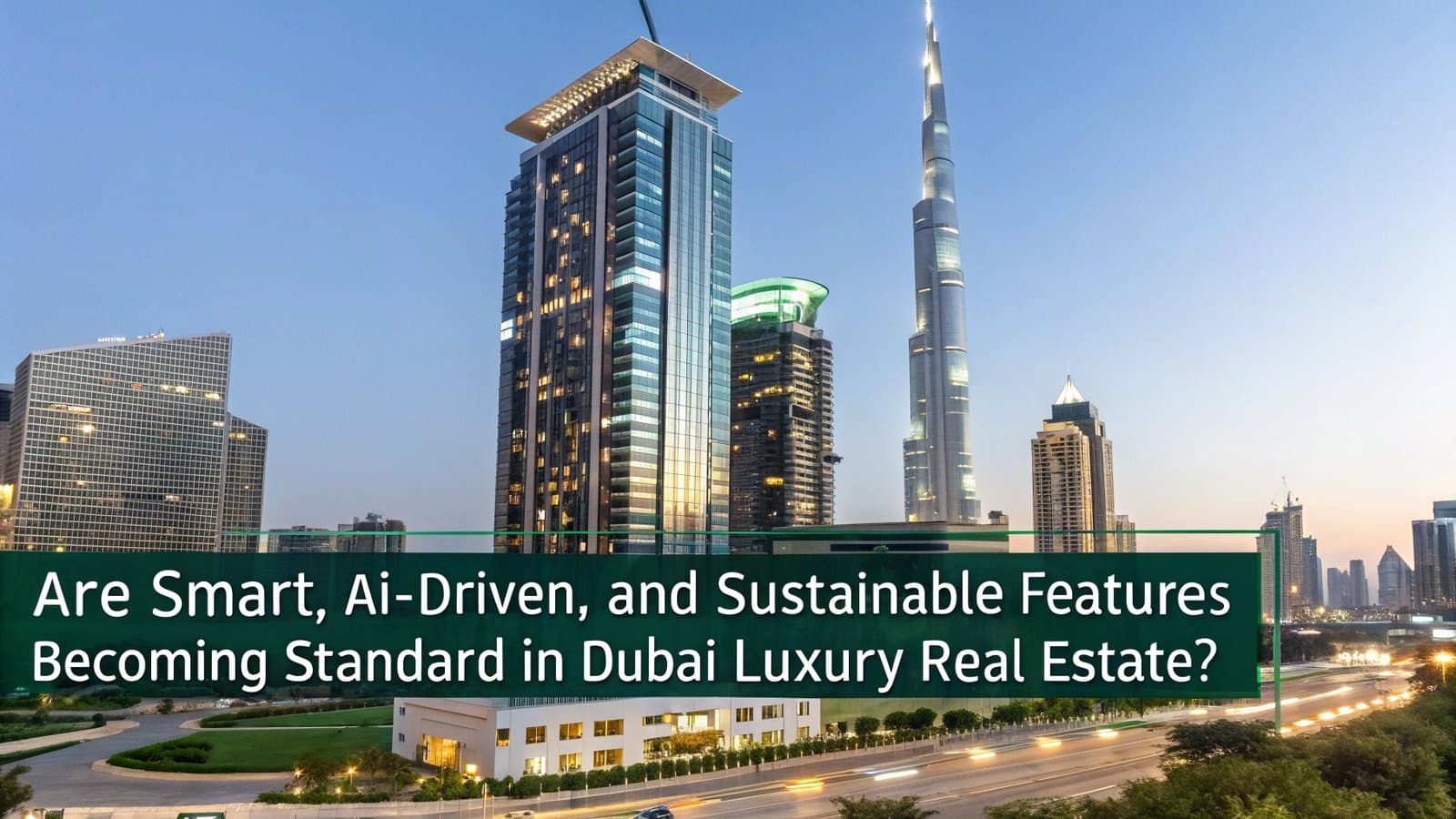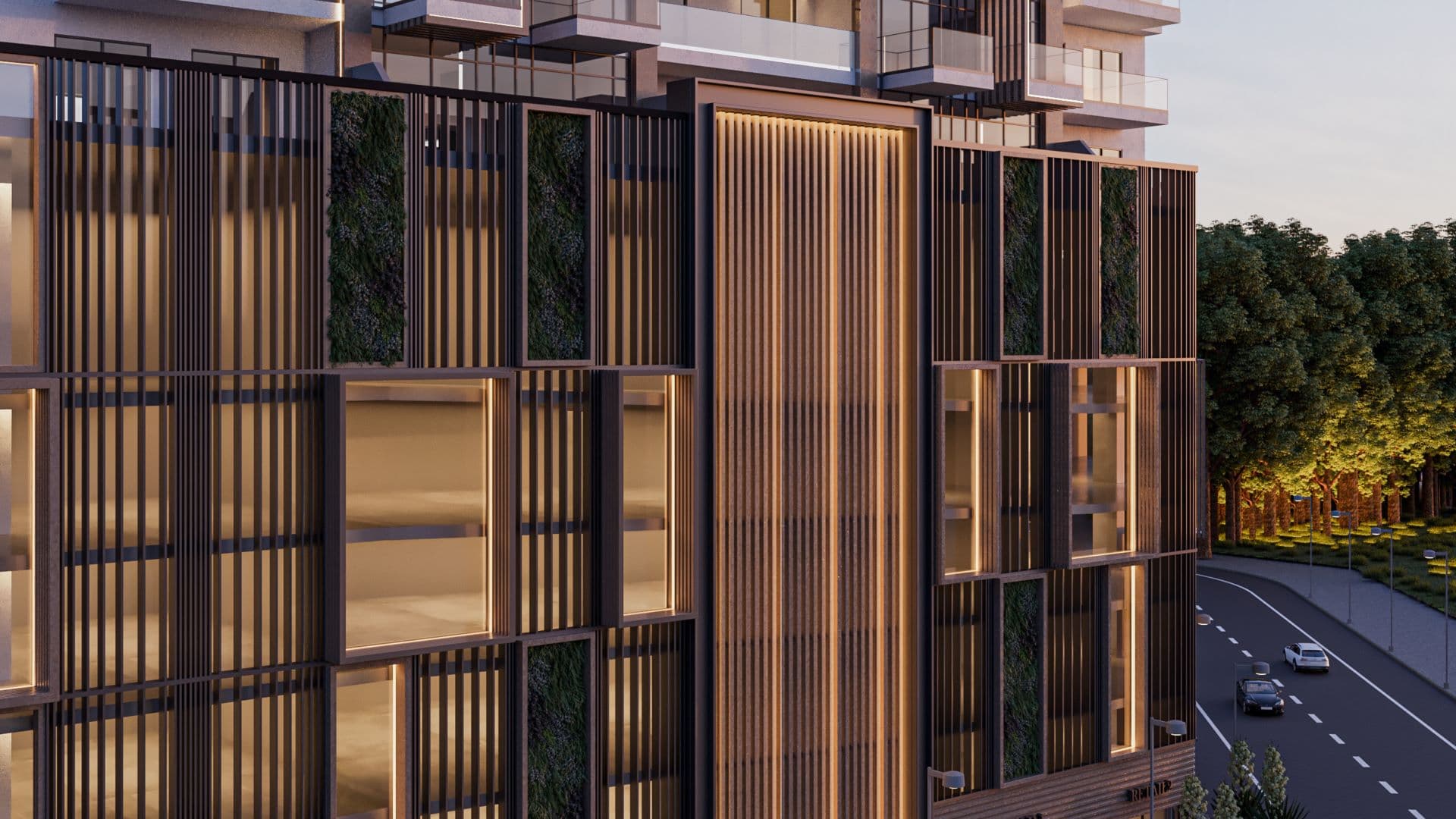Are Smart, AI-Driven, and Sustainable Features Becoming Standard in Dubai Luxury Real Estate?

Dubai’s luxury real estate market is synonymous with innovation and extravagance, setting global benchmarks for high-end living. As the city evolves, smart, AI-driven, and sustainable features are increasingly shaping the future of luxury homes. This blog explores whether these elements are becoming standard, diving into the popularity of smart homes, the rise of sustainable luxury properties, the integration of AI technology, trending luxury interiors, and the demand for branded residences. Whether you’re eyeing a penthouse in Downtown Dubai or a villa in Palm Jumeirah, here’s how Dubai’s luxury market is redefining modern living in 2025.
Are Smart Homes Popular in Dubai?
Smart homes are not just popular—they’re becoming a cornerstone of luxury real estate in Dubai. The city’s tech-savvy residents and global investors demand cutting-edge convenience, driving developers to integrate smart systems into properties across Dubai Marina and Business Bay.
Adoption Rates: Over 60% of new luxury developments in areas like Dubai Hills Estate incorporate smart, sustainable luxury homes, featuring automated lighting, climate control, and security systems.
Key Features: Smart homes in JBR or Bluewaters Island include voice-activated assistants, integrated IoT devices, and remote access via mobile apps, enhancing convenience and energy efficiency.
Market Appeal: Properties with smart features command 10–15% higher resale values, as noted in Dubai’s 2025 real estate economics, appealing to investors focused on portfolio management.
Accessibility: From penthouses and high-rises to villas in Emirates Hills, smart home systems are now standard in new developments, with retrofit options growing in older properties.
Are There Sustainable Luxury Homes in Dubai?
Sustainability is no longer a niche trend but a defining feature of luxury real estate in Dubai. The city’s commitment to eco-friendly initiatives, like the Dubai Clean Energy Strategy 2050, has spurred the rise of sustainable luxury homes.
Green Building Standards: Developments in Dubai Creek and Al Safa adhere to LEED or Estidama certifications, using energy-efficient materials and solar panels.
Features: Sustainable homes in The Greens boast water-saving systems, smart thermostats, and eco-friendly insulation, reducing utility costs by up to 20%.
Market Growth: Over 40% of new luxury projects in megaprojects incorporate sustainable designs, appealing to environmentally conscious buyers.
Tax Incentives: Dubai’s tax benefits extend to green developments, with incentives for energy-efficient projects in freehold areas.
Do Luxury Homes Include AI Technology?
AI technology is transforming Dubai’s luxury real estate, elevating properties in DIFC and Zabeel into intelligent living spaces.
AI Integration: Luxury homes in City Walk feature AI-driven systems for predictive maintenance, personalized climate control, and security monitoring, using machine learning to adapt to residents’ habits.
Smart Security: AI-powered cameras and facial recognition in Jebel Ali enhance safety, with real-time alerts integrated into home systems.
Energy Management: AI optimizes energy use in smart, sustainable homes, reducing costs by 15–25% in areas like Al Quoz.
Market Trends: In 2025, over 30% of luxury properties incorporate AI, with developers like those in Al Shindagha prioritizing tech to attract global buyers.
What’s Trending in Luxury Interiors?
Luxury interiors in Dubai reflect a blend of innovation, elegance, and cultural influences, shaping properties in Downtown Dubai and Palm Jumeirah.
Minimalist Designs: Clean lines, neutral palettes, and open spaces dominate, especially in penthouses and high-rises, creating timeless elegance.
Smart Integration: Interiors in Business Bay feature built-in smart panels and voice-activated controls for lighting and entertainment.
Sustainable Materials: Eco-friendly materials like reclaimed wood and low-VOC paints are trending in Dubai Hills Estate, aligning with sustainability goals.
Cultural Touches: Arabic-inspired elements, such as geometric patterns and bespoke art, are popular in Al Fahidi, adding unique character.
Wellness Spaces: Home spas, meditation rooms, and indoor gardens are in demand, particularly in villas in Emirates Hills.
Are Branded Residences in Demand?
Branded residences, developed in partnership with luxury brands like Versace or Bulgari, are surging in popularity in Dubai’s luxury real estate market.
Market Appeal: Properties in JBR or Downtown Dubai with brand affiliations command 20–30% price premiums due to their exclusivity and prestige.
Features: Branded residences offer bespoke interiors, concierge services, and access to branded amenities like spas or gyms, as seen in Bluewaters Island.
Investment Value: These properties yield high rental returns (6–8%) and strong resale value, appealing to investors leveraging private equity financing.
Demand Drivers: Global high-net-worth individuals, especially in DIFC, seek branded residences for status and lifestyle, with demand growing in 2025 megaprojects.
Key Considerations for Buyers
Market Trends: Stay updated on Dubai’s 2025 real estate economics to align investments with smart and sustainable trends.
Developer Reputation: Choose developers with a track record in smart, sustainable homes to ensure quality.
Legal Clarity: Verify freehold property status and understand leasehold options in areas like Jebel Ali.
Professional Guidance: Work with experts to navigate financing options and secure properties with AI and sustainable features.
Smart, AI-driven, and sustainable features are rapidly becoming standard in Dubai’s luxury real estate, driven by demand for innovation and eco-consciousness. From smart homes in Dubai Marina to sustainable villas in Emirates Hills, and AI-integrated penthouses in Downtown Dubai, Dubai leads the global luxury market. Trending interiors and branded residences in Bluewaters Island further elevate the city’s appeal. By leveraging tax benefits and aligning with 2025 trends, investors can secure high-value, future-proof properties in Dubai’s dynamic market.
